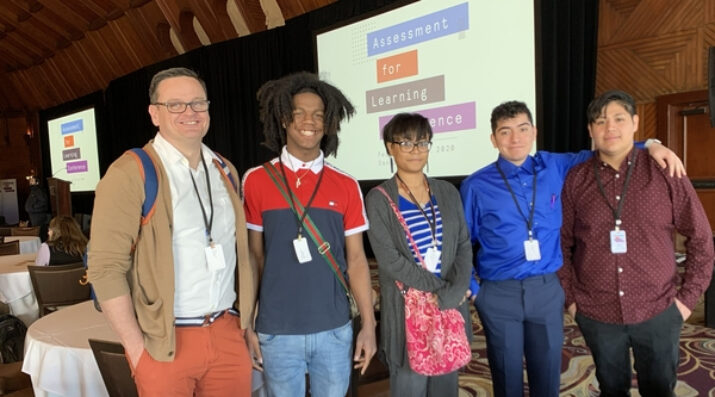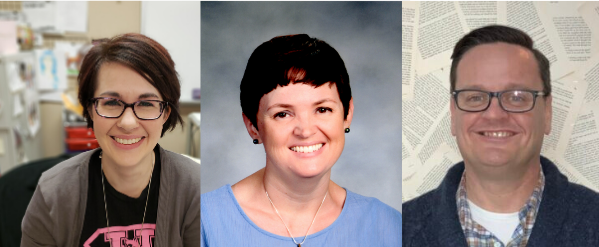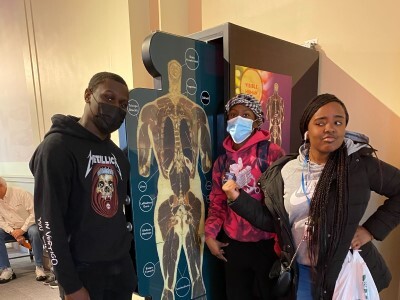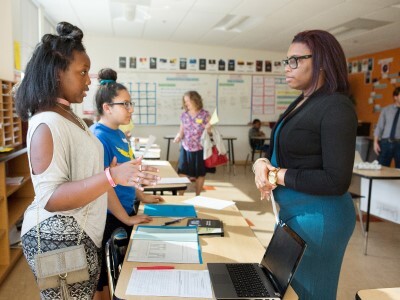Reimagining Assessment
Formative Assessment and Online Learning: What Are Non-Negotiables for the New School Year?
Topics

Educators are rethinking the purposes, forms, and nature of assessment. Beyond testing mastery of traditional content knowledge—an essential task, but not nearly sufficient—educators are designing assessment for learning as an integral part of the learning process.
Three formative assessment teachers evaluate which aspects of their practice are non-negotiable as they prepare for online instruction in the new school year.
As we think about teaching and learning using formative assessment in online instruction in the new school year, we ask ourselves, What are the non-negotiables for my classroom moving forward?
The current situation in U.S. classrooms demands a deep alteration of typical teaching practices. Teachers with a foundation in formative assessment practices have the mindset to adapt and try new strategies to reach their students. This unexpected transfer of learning to an online environment forces us to reevaluate those aspects of our practice that are non-negotiable.
Leveraging Student Voice
Hilary: The idea of starting a new year online with students that I will not have the chance to know first in person is daunting. While the online element adds to the inherent messiness of learning, formative assessment embraces that messiness. To encourage and guide me as I move forward, I will use the voices of students who have experienced this learning process with me. These students have been able to clearly voice their growth due to their ability to value feedback from their peers and demonstrate mastery of success criteria and learning goals.
I see my current group of students, high school freshmen who spent most of the year in the classroom with me and finished online, as such a valuable resource. Sharing the formative assessment journey with my students has always been something I cherish, and now more than ever I will rely on that partnership. I will draw on the knowledge and ideas that these students have to help guide me as I plan the process of community building, fostering a growth mindset, and encouraging ownership of learning with the new group of students I will have next year. As we close out this year, I will be reaching out to my current students directly, asking them to share their thoughts on how I might recreate our in-person classroom culture with new students in an online space, and what they value most in the formative assessment work we did in class this year, both in-person and online. In short, I’ll ask, What are your non-negotiables for learning in an online setting?
Focusing on Iterative Processes
Julie: Moving to online teaching in a pandemic challenges teachers to find unique and creative ways to connect with students. Sure, teachers can fall back on handouts and quick response, but how are we then growing critical thinkers? As I ponder the reality of beginning a school year online, with all new learners I will not have the ability to meet face-to-face, a few non-negotiables from formative assessment practice will follow me. First, in my writing classroom, students always get the opportunity to revise. No, I am not inundated with 155 essays all over again. No, students do not turn in terrible work to just have time to work on it later (well, okay, maybe one of the 155 will). They want to turn in a perfect essay the first time, but they must learn, and we must allow, that the process of writing is just that: a process. Why is it that we expect students to turn in a perfect essay after only one draft?
Now, more than ever, it is imperative that we train students to become clear, authoritative writers—especially if they are going to be communicating in an online environment heavily in their formal educational years. Second, I need my students to build their confidence to share their voice in our classroom. The process of peer feedback and self-assessment are two formative assessment elements I focus on each year, and each year I strive to further stretch my students and grow this practice. Building these opportunities in an online setting presents a new set of challenges, which stretches my own abilities. So, as I end an unusual year and go into the next with a variety of unanswered questions, I know I will figure it out because I have to. My students deserve it.
Prioritizing Student Self-Assessment and Observation
Joe: Students entering my classroom expect a traditional content-transfer method of learning in which the teacher gives students information that they return in the form of an essay or multiple choice exam. This is what they are used to. As part of our journey together, the students and I explore the possibilities of learning by initially focusing on two simple concepts: making observations and reflecting on learning.
First, students must understand that learning is a process, not a product. We begin the year by learning to make observations with the language of “noticing and wondering.” Students are asked to look at a text, piece of writing, or even video of other students and describe what they notice or wonder. This skill takes practice but is foundational in a switch from rote learning to student agency. Making an observation does not require a “correct” answer; students cannot get this wrong. We begin to establish a learning culture as we engage in these low-stakes conversations.
The second concept underscores every aspect of formative practices. Students must develop a practice of self-assessment in order to become self-regulated learners. They need to reflect on their learning—the how and why—and be able to compare their understanding to co-constructed success criteria. Without self-reflection, students will be unable to engage in effective peer feedback, which requires them to internalize information from another student and use it to move their learning forward. Without self-assessment, students will never make the transition to become learners who dive below the surface to reach the how and why. As we redefine our learning environments—both virtual and in-person—we must include both observation and self-assessment if we are going to create learning cultures that value student agency.

The authors: Julie Eilertsen, Hilary Johannes, and Joe Nelson
Related post from the authors: The Power of Collaborative Teacher Learning
Photo at top, courtesy of Joe Nelson: Four students accompanied co-author Joe Nelson to the Assessment for Learning Conference in February 2020.




